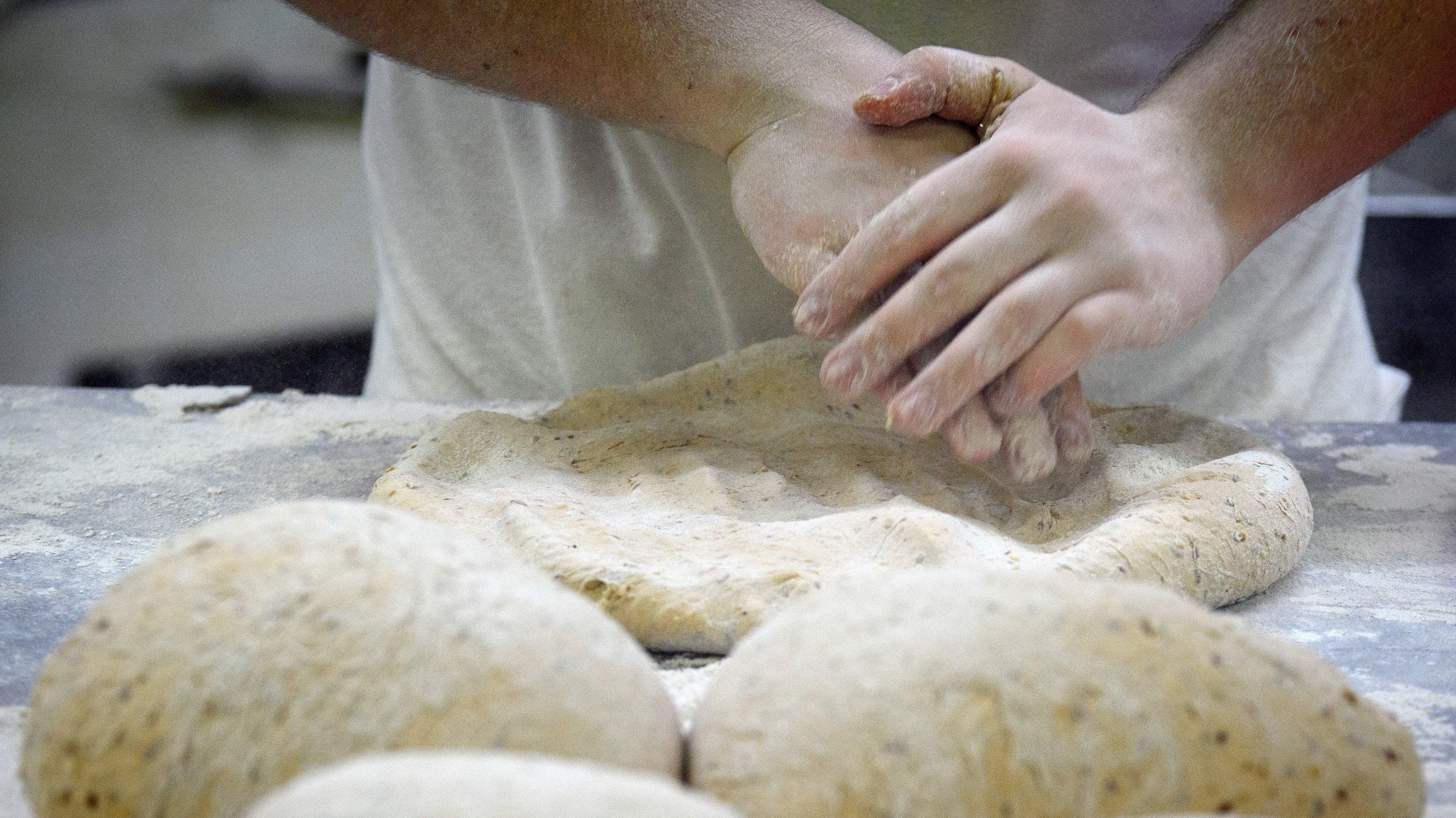Eating Raw Flour Is Still Not Okay
Put the tube down and step away from the cookie dough.
With brands like Nestle Toll House and Ben and Jerry out there creating safe-to-eat-raw cookie dough, you'd think the safety concerns of consuming raw flour would be eliminated, but think again. Two studies published by the International Association for Food Protection demonstrate that people are unconcerned with the risks of consuming raw flour, reports Food Safety News. And that's a problem.
By no means am I innocent of this offense. Hand me a bowl of chocolate chip cookie dough and my method becomes one spoonful for the oven and one for me, one spoonful for the oven, one for me. However, one study, "Consumption of Raw Flour in the United States: Results from the 2019 U.S. Food and Drug Administration Food Safety and Nutrition Survey," shows that like many others I am unaware of just how bad it can be to consume raw ingredients like this.
Multiple E. coli outbreaks have raised concern over the years and seem to be the catalyst for these two studies. The Centers for Disease Control and Prevention warns against eating uncooked flour as it can contain germs, like E. coli, that cause food poisoning. The U.S. Food and Drug Administration also cites Salmonella as one of the harmful bacteria found in raw flour.
One study found that 35% of people report having tasted or eaten something with uncooked flour in it like cake batter. Keep in mind that number is just people who took the food safety and nutrition survey and were willing to admit they've knowingly consumed raw flour.
The studies also found that many people do not think raw flour contains anything that could make them sick, which is probably why most of us aren't absolutely appalled when someone admits to licking the cake batter off a spoon when baking. In fact, we are so comfortable with the idea of ingesting uncooked flour that the second study "Online Media Attention Devoted to Flour and Flour-Related Food Safety in 2017 to 2020," noted that internet searches regarding flour mainly focus on its use in baking. The only time people looked into food safety risks or illness associated with flour was when it came to recall announcements.
